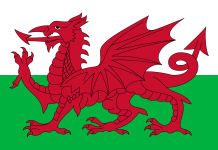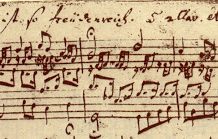A recent reflection in First Things warns against sacralising politics (or politicizing the sacred), and rightly so. As the prophet Jeremiah warns: cursed is the man who trusts in man, and makes flesh his strength, whose heart departs from the LORD (17:5).
Yet, I may be permitted to offer some further distinction required, when the author writes:
Of the many things Christians might do to put God back in their homes, voting for any candidate seems an odd place to start. Indeed, if voting for Trump is considered a fulfillment of Christian duty, or even an act of Christian piety, it would be a distraction from that duty, or a dereliction of piety—in short, a danger to Christian faith and practice.
True enough: One should not start with politics to put the sacred anywhere. We should rather begin at the beginning, within one’s own heart and home. But when there’s an existential threat to keeping ‘God in your home’, priorities shift – the aggressor must be avoided or neutralized. The primary task of the state, and the politicians who govern, is first and foremost is to provide peace and good order, founded on the objective moral law, to leave room and freedom so that the myriad of private societies – especially the family – may flourish. Need we belabour how this applies in the current crisis?
This is the very reason why the notion of ‘Christian duty’ must be clarified. There are actions that are specifically Christian, flowing from the virtues of religion and piety – attending Mass, saying one’s Rosary, regular Confession and so on.
Then there are other duties that flow from other virtues which are not specifically sacred – scrubbing the bathroom, studying for an exam, practising music, feeding one’s children, and, yes, voting. Yet we may see these duties as ‘Christian’ in a broad, unified sense, since they follow upon some truth impinging on our conscience, moving it suaviter et fortiter, to do, or not do, something. And that voice of conscience, if properly formed, is Christ Himself speaking. For what is conscience, as Gaudium et Spes put it, but a dialogue between God and man?
Conscience is the most secret core and sanctuary of a man. There he is alone with God, Whose voice echoes in his depths (#16)
In this sense, are not all of our duties ‘Christian’? As the decree on the laity, Apostolicam Actuositatem, further clarifies:
Christ’s redemptive work, while essentially concerned with the salvation of men, includes also the renewal (instaurationem) of the whole temporal order. Hence the mission of the Church is not only to bring the message and grace of Christ to men but also to penetrate and perfect the temporal order with the spirit of the Gospel. In fulfilling this mission of the Church, the Christian laity exercise their apostolate both in the Church and in the world, in both the spiritual and the temporal orders. These orders, although distinct, are so connected in the singular plan of God that He Himself intends to raise up the whole world again in Christ and to make it a new creation, initially on earth and completely on the last day. In both orders the layman, being simultaneously a believer and a citizen, should be continuously (continenter) led by the same (una) Christian conscience. (#5)
All things are Christ’s, Who is all, in all (Col 3:11).
Only to say that voting, and voting prudently and wisely, is a Christian act, just as all acts of a Christian are Christian. While we should distinguish how explicitly ‘Christian’ any given act may be, we cannot go to the point of bifurcating our conscience into ‘Christian’ and ‘non-Christian’, even if that conscience is motivated by many different factors in the vagaries of this fractious life.
We may wish there were better choices – a philosopher-king, say. At this point, we’d even take a philosopher-prince, duke or minor viscount. Would also that the bombast were not so bombastic, with less ad hominem vitriol and more ad veritatem dialogue. But what we have is given to us in God’s mysterious providence, and we must make the best of it – or, at the very least, the less worse.
What is our Christian duty is to realize the implications of our vote – or non-vote, as the case may be – and how it will weigh upon one’s conscience. This applies to all of our decisions, especially when so much is at stake, with the very fate of the family, nation, and everyone therein, hanging in the balance, as the chasm between good and evil widens. Sure, things already may have gone too far, and no president can at this point ‘save’ America. But we should do what we can. Even if we’re all going off a cliff, we must along the way prepare to go before our Lord and Maker with a conscience that is clear, continent and unified, in both the temporal and the spiritual order.












